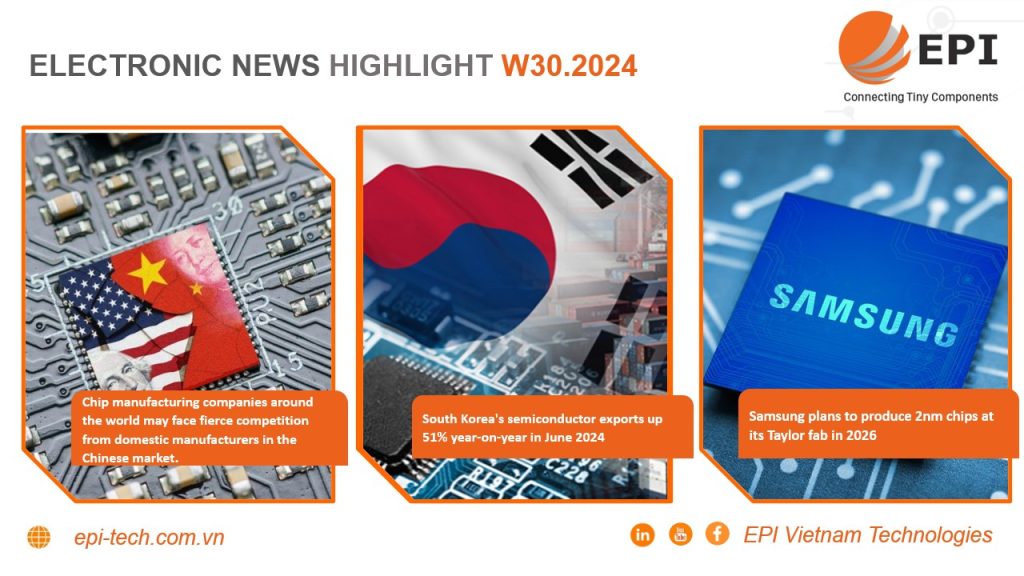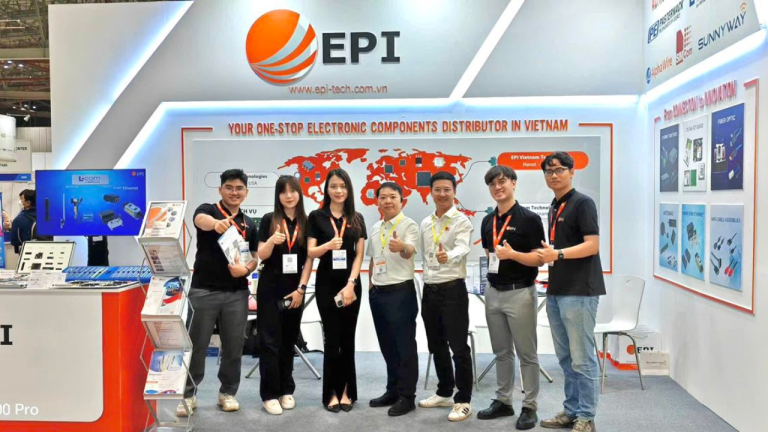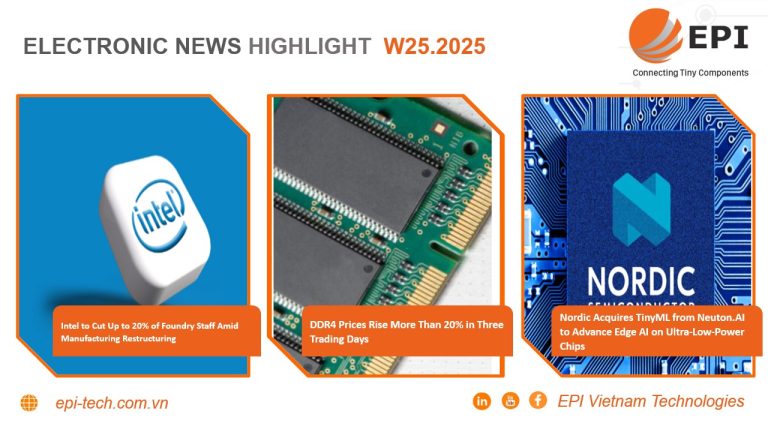ELECTRONICS MARKET NEWS W30.2024

1. Chip manufacturing companies around the world may face fierce competition from domestic manufacturers in the Chinese market.
China increases investment in the semiconductor industry, manufacturers such as NXP Semiconductors, Infineon Technologies and Renesas Electronics… may be affected by competitors in the Chinese market. While these companies don’t make the most advanced chips in the industry, the MCUs and other chips the companies produce are essential to the industrial and consumer electronics industries.
MCU microcontrollers are used to control the functions of electronic devices, such as activating car airbags or controlling water temperature in a washing machine…. In particular, China currently accounts for 30% of global demand for MCUs in the domestic market.
Although chips are less advanced, demand for chips is growing due to the growth of the electric vehicle and renewable energy markets. In addition, the European Commission is concerned that chip manufacturers will face the risk of losing a large market share in China and could start a price war in the future.
2. South Korea’s semiconductor exports up 51% year-on-year in June.2024
According to data released by the Korea Customs Administration, South Korea’s exports increased 5.1% to $57.07 billion in June, marking the ninth consecutive month of year-on-year export growth.
In particular, the export value of all IT products including semiconductors, displays, computers and wireless communication equipment increased for four consecutive months. The largest export product, semiconductors, has increased for eight consecutive months. In June 2024, South Korea’s semiconductor exports exceeded $13.4 billion, up 50.9% over the same period in 2023.
South Korea’s Ministry of Trade, Industry and Energy analyzed that as demand for high-value memory products in AI devices continues to expand, memory chip prices continue to increase by double digits and semiconductor exports The guide is showing a strong trend. Among them, memory exports, including HBM high-bandwidth memory, increased 85% to $8.8 billion, as demand for it skyrocketed due to the AI boom.
Learn more: South Korea’s semiconductor export up 51% year-on-year in June 2024
3. Samsung plans to produce 2nm chips at its Taylor fab in 2026
Samsung plans to begin production at its wafer fab in Tyler, Texas in 2026 instead of 2024 and may start with a 2nm production process. Samsung’s Taylor fab was originally scheduled to start producing 4nm chips in late 2024, but Samsung may decide to switch to 2nm in the third quarter of 2024.
Industry insiders believe that one reason Samsung adjusted production nodes and lead times could be the pace of market adoption of artificial intelligence and demand for advanced chips. Currently, TSMC is manufacturing the 3nm advanced process for market leader Nvidia.
In addition, competition with other manufacturers may also be a factor that causes Samsung to adjust the production plan of the Taylor factory. Currently, Intel is expected to launch 20A and 18A (2nm and 1.8nm) processes in 2024. TSMC is expected to launch 2nm processes in the first half of 2025, while Rapidus said it has plans to produce chips using IBM’s licensed 2nm process on a pilot line in April 2025 and achieve mass production in 2027.
Learn more: Samsung plans to produce 2nm chips at its Taylor fab in 2026
#chip #Chinese_market #South_Korea #semiconductor #Samsung #2nm_chips #Taylor_fab



 English
English  Tiếng Việt
Tiếng Việt 













